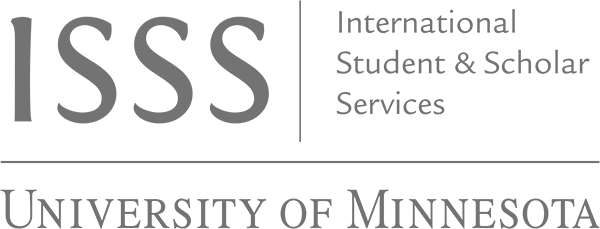The U.S. Secretary of Homeland Security has the ability to suspend certain F-1 requirements if it is determined the country is experiencing severe hardship that is impacting F-1 students in the U.S. These affected students may request employment authorization, work an increased number of hours while school is in session, and reduce their course load while continuing to maintain F-1 non-immigrant student status.
Permission must be granted either by ISSS and/or USCIS before a student can utilize the SSR provisions. Under this permission, students can request one of the following permissions:
- ON-CAMPUS work permission over 20 hours per week and a reduction of the minimum credit enrollment (minimum 6 credits for undergraduates; minimum 3 credits for graduate).
- OFF-CAMPUS work permission over 20 hours per week in any field, and a reduction of minimum credit enrollment (minimum 6 credits for undergraduates; minimum 3 credits for graduate).
The SSR authorization is issued for a period of one year or to the expiration date of the notice (see below) - whichever comes sooner. Students with SSR permission are required to enroll at least half-time. The SSR authorization ends if a student graduates or transfers to a different school.
PLEASE NOTE: Some programs, scholarships, or on-campus jobs (for example, TA or RA) may require full-time enrollment. Receiving SSR authorization does not waive this requirement, so students will need to communicate with the appropriate office about their situation.
Frequently Asked Questions
What is the eligibility criteria for SSR?
A student must be:
- A citizen of an appropriate country who was lawfully present within the United States on an F-1 visa on the designated start date (review the table below for country-specific criteria)
- Have an I-20 from the University of Minnesota, Twin Cities campus
- Currently maintaining F-1 status
- Enrolled at the University of Minnesota, Twin Cities
- Able to document that they are experiencing severe economic hardship as a direct result of the current crisis in their country of citizenship.
| Country of Citizenship (regardless of country of birth) | Have been lawfully present in the United States in F-1 status on this date | Be experiencing severe economic hardship as a direct result of... | SSR Designation expires on this date |
|---|---|---|---|
| Afghanistan | Redesignated September 25, 2023 | the current armed conflict and current humanitarian crisis in Afghanistan | May 20, 2025 |
| Burma (Myanmar) | Redesignated March 22, 2024 | The current armed conflict and humanitarian crisis in Burma | November 25, 2025 |
| Cameroon | Redesignated October 10, 2023 | the crises in Cameroon | June 7, 2025 |
| Ethiopia | Redesignated April 12, 2024 | current armed conflict and humanitarian crisis in Ethiopia | December 12, 2025 |
| Haiti | Redesignated June 28, 2024 | the current crisis in Haiti | February 3, 2026 |
| Hong Kong | Redesignated January 26, 2023 | the current crisis in Hong Kong | February 5, 2025 |
| Palestinian Territories | Designated April 15, 2024 | the current humanitarian crisis in the Palestinian Territories | August 13, 2025 |
| Somalia | Redesignated July 19, 2024 | the current crisis in Somalia | March 17, 2026 |
| South Sudan | Redesignated September 6, 2023 | the humanitarian crisis in South Sudan | May 3, 2025 |
| Sudan | Redesignated August 21, 2023 | the current crisis in Sudan | April 19, 2025 |
| Syria | Redesignated January 29, 2024 | the current armed conflict and humanitarian crisis | September 30, 2025 |
| Ukraine | Redesignated August 21, 2023 | the ongoing armed conflict in Ukraine | April 19, 2025 |
| Venezuela | Redesignated March 11, 2024 | the current crisis in Venezuela | September 10, 2025 |
| Yemen | July 10, 2024 | the crisis in Yemen | March 3, 2026 |
What is the difference between on-campus vs. off-campus work?
Students applying for SSR must decide whether they wish to work on or off campus. There are differences in the application process and timing of approval.
Full-time, On-campus Work Permission
If ISSS determines you meet the eligibility criteria, we will authorize full-time on-campus work permission and a reduction of your course load on a new I-20. We will send an approval letter and a new I-20 to you.
- You can immediately reduce your credits until the end date on the approval letter. Undergraduate students must enroll in a minimum of 6 credits, and graduate students must enroll in a minimum of 3 credits.
- You will need to show your UMN work supervisor ISSS's approval letter to increase your on-campus work hours above 20.
- The permission is only for working on the UMN-Twin Cities campus.
Full-time, Off-campus Work Recommendation
If ISSS determines you meet the eligibility criteria, we will recommend off-campus work permission and a reduction of your course load on a new I-20. We will send a recommendation letter and a new I-20 to you.
- After getting ISSS's recommendation, you must submit your application to USCIS. You are responsible for doing this and paying the fee.
- USCIS can take several months to review your application.
- A recommendation by ISSS is not an approval, and it does not guarantee USCIS approval. Students cannot begin off-campus employment or reduce their credit hours until they receive approval from USCIS in form of an Employment Authorization Document (EAD).
